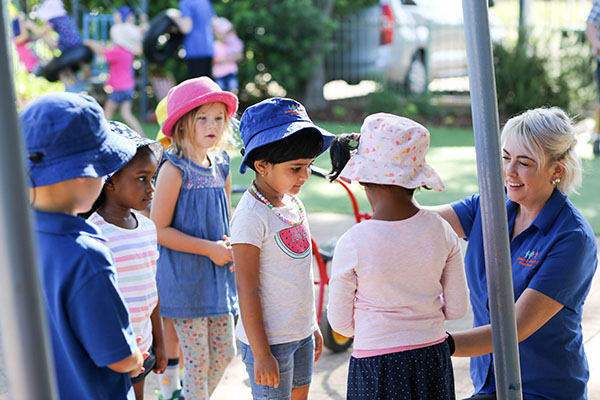Overview
Alignment with Be You Domains
-
Mentally Healthy Communities
-
Learning Resilience
-
Early Support
Alignment with Early Years Learning Framework (EYLF)
- Children are confident and involved learners
- Children are connected with and contribute to their world
- Children are effective communicators
- Children have a strong sense of identity
- Children have a strong sense of wellbeing
Alignment with Australian Curriculum
- English
- Health and PE
- The Arts
Target audience
- Early learning
- Primary school
Target groups
- Individual
- Small group
- Whole class
- Whole school
Aims
The Positive Living Skills Wellbeing Program offers early prevention and intervention programs which teaches children skills to recognise, regulate and self-direct emotions and behaviours, foster empathy, build resilience, focus in connected and positive ways, The programs aims to help children develop a secure sense of self, form healthy relationships and interact appropriately with others, foster appreciation and gratitude and build effective communication skills. The programs also support educator wellbeing and families.Program theory
The programs are based on CASEL’s 5 core competencies for social and emotional learning, and the theories of priming and distributed practice to build long-term habits for emotional wellbeing. It also calls on the principles of cognitive behavioural therapy, neuroscience and Rotter’s social learning theory to support an internal locus of control. The programs also use the concepts of growth mindset, self-leadership, gratitude practice, mindfulness, healthy self-esteem and building relationship and problem-solving skills that encourage cooperative win-win solutions.Topics
Early childhood to Year 6: There are 6 core concept units (highlights, feelings, focus, relaxation, cooperation, self-esteem). Years 3 to 6: Offers an additional 6 concept units (appreciation, choice, communication, solutions, leadership, potential).Cost
Program structure
Early childhood: 48 sessions (songs, animations, digital download learning stories and activity guides for children from birth to 3. Primary school: 216 sessions (visual and audio resources, and planning, mapping and assessment tools). The program is flexible, and all learning experiences and resources can be used as required. Where a learning community is implementing Positive Living Skills as a whole-school or whole-service program, it is recommended that every class delivers the same lesson once a week across the whole school or service (this is flexible).Instructor
- Educator
- Wellbeing leader
Instructor training
Positive Living Skills team provide onboarding and staff introduction to the program and the concepts via on-demand online sessions or webinars (2 to 3 hours). Programs include professional development (PD) sessions for educators (15-minute to 30-minute learning experience sessions and 90-minute PD sessions). PD sessions are not required before program delivery.Supporting resources or materials available with program
- Online webinars
Other materials
Digital resources, on-demand online information sessions, professional development online workbooks.Ongoing support
Observation and feedback via educator surveys. Ongoing phone and email support. Additional training, if requested.Parent involvement
Not provided
Origin of program
Australia
PLS Learning Solutions Australasia Pty Ltd
Program authors
Catherine Shaw, Jo Devin
- GR, 100 Walker St,North Sydney NSW 2060 Australia
Ratings
Summary of evidence factors
This is a summary of the evaluation or research study characteristics that contribute to the program’s evidence rating.
|
Positive impact on at least one outcome for children and/or young people?
The study reported positive outcomes. |
No |
|---|---|
|
Link between program description and theory of change
Theory of change refers to whether there was a comprehensive description and illustration of how and why a desired change is expected to happen in a particular context. |
Comprehensive |
|
Study design
Type of study design reported. |
Qualitative/Post cohort |
|
Independence
The degree to which the program authors were involved in the research. |
Completely |
Summary of implementation factors
This is a summary of the program’s characteristics that contribute to its implementation rating.
|
Feedback sought from participants
Participants enjoyed the program and understood its benefits. |
Yes |
|---|---|
|
Feedback sought from instructors
Instructors enjoyed the program and understood its benefits. |
Yes |
|
Groups program is not suitable for
Groups the program wouldn't be suitable for or that required further research to determine suitability. |
Not assessed |
|
Training provided during study
The model of training provided. |
Web based |
|
Ongoing instructor support provided during study
Whether ongoing support is provided. |
Yes |
Context
This is a summary of the context in which the evidence for the program was established.
|
Study Participants
Pre school, primary school (Foundation to Year 6), secondary school (Years 7 to 12). |
Early learning Primary school |
|---|---|
|
Country of Study/s
The location in which the evidence or research was conducted. |
Australia |
|
Location of Study/s in Australia
The state (or states) the program was assessed in Australia. |
NSW |
|
Evaluation of program in culturally and linguistically diverse populations
Provider has included culturally and linguistically diverse people when assessing the program. |
No |
|
Evaluation of program in Aboriginal and Torres Strait Islander children and young people
Provider has included Aboriginal and Torres Strait Islander peoples when assessing the program. |
No |
|
Evaluation of program in low socioeconomic groups
Program has evaluated a diverse socio-economic population in their research. |
Yes |
|
Developmental based adaptations to program design and delivery
Shorter sessions for younger students or activities are adjusted for age appropriateness. |
No |
|
Evaluation of program in children and young people with disability and/or learning difference
Provider has included participants with a disability or learning difference when assessing the program. |
Yes |
Last updated: 5 October 2023
